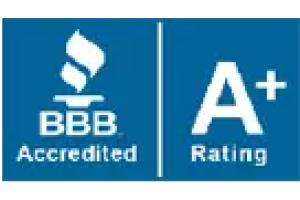Trial Lawyers
Sales Commission Claims
Commercial Litigation
Commissions are a standard form of motivation and compensation for sales representatives. By definition commissions equate to a portion of compensation based on attainment to sales goals, an overall percentage of sales, or the business’ profits and those who make more sales in turn make more money. In some cases, salespeople are not in fact paid all or some of the commissions that they are due. Regrettably, some companies choose to terminate employment or a sales contract in order to elude paying commissions. The Sales Representative Act usually regulates sales commission disputes in Illinois. The experienced commercial litigation attorneys at Loftus & Eisenberg, Ltd have assisted many clients address disputes under this law.
Sales Commissions Claims
The Illinois Sales Representative Act includes various requirements to ensure that salespeople receive any commissions outstanding and to prevent companies from using unjust business practices to get out of compensating their salespeople. This Illinois Sales Representative Act (ISRA) was designed as a result of the Illinois Wage Payment and Collection Act (IWPCA), and was established to safeguard salespeople acting as independent contractors who should be protected under IWPCA, but aren’t eligible due to their contractor status.
ISRA defines a salesperson as one who contracts with a business or entity to solicit orders for the product or service and is paid either partially or entirely by commission. There are some exclusions to what may be truly defined as a salesperson, for example any type of employee or a person who purely places orders on his or her own behalf so as to resell the product or service.
Under this law a principal can be defined as corporation, partnership, sole proprietor, or further business entity that produces or supplies a product or service for sale, establishes contracts with individuals in order to seek orders for a product, and recompenses the individual either partially or wholly by commission.
The ISRA specifies that any contractual terms between the salesperson and the principal are governing in regards to the timing of commission payments, but if either there is no contract or that contract does not institute a timing, past practice will be followed. If neither past practice nor contract exists, industry control the timing.
Often times sales commissions disputes arise when the principal terminates the sales contract. When this occurs, ISRA requires that any commissions due at the time of termination are required to be awarded in no more than thirteen days post termination. In addition, any commissions due after the termination are also owed within thirteen days of the date when the commissions come to be due. This rule is steadfast and not available to be renounced.
Lawsuits in civil court are often a result from when a principal neglects to make commission payments in a timely fashion or terminates the contract without following the timely payment regulations as determined by law. A successful salesperson could potentially recuperate any outstanding amounts unpaid in addition to exemplary damages up to three times the remaining amounts due as well as attorney’s fees and costs only when there is a definitive discovery of culpability. Achieving exemplary damages is challenging in these claims and in practice to do so we must prove egregious facts showing a willful breach.
If you are owed sales commissions, the business lawyers at Loftus & Eisenberg can help you obtain is rightfully yours.
















